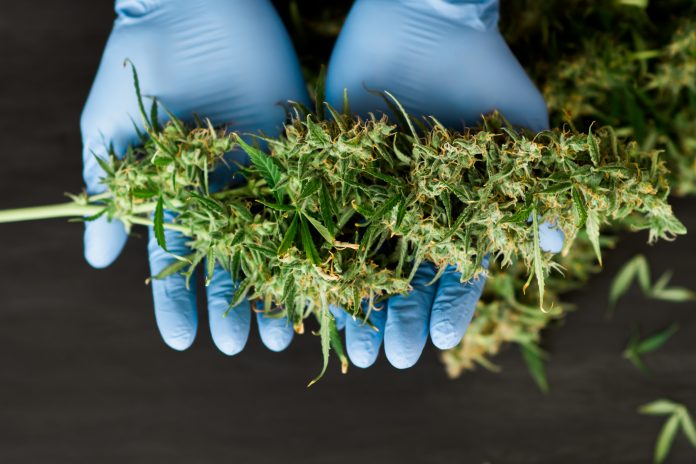John Binns, Partner at BCL Solicitors LLP looks at the UK’s cannabis laws and how they could be improved
The UK is, of course, not the only country in the world whose cannabis laws are in a state of flux. To a large extent, the issues its legal establishment is, with lumbering momentum, starting to grapple with – the distinctions between CBD- and THC-containing products, between medical and recreational use, between the pharmaceutical and wellness markets – are the same as in other jurisdictions. But the UK also brings its own particular legal baggage to this debate, which may help explain why it has been slower to change (so far, at least) than many would like.
Challenges within the law
The first set of challenges brought by UK law to the cannabis debate are technical in nature, arising simply from the way our laws are written. One key topical example is the fact that, contrary to much public reporting on the subject, our Misuse of Drugs Act contains no exemption for products that contain THC below a certain minimum threshold (whether 0.2% or otherwise), causing a problem for many CBD products that contain such trace amounts. Another is that our Proceeds of Crime Act (POCA) prohibits virtually any dealing with the proceeds of ‘criminal conduct’, defined to include conduct that is lawful overseas but that would be unlawful if it happened here
On the face of it, these issues would be relatively easy to resolve, by amending the legislation to bring it in line with what most people would reasonably assume is the law – although any technical solution would itself bring technical questions. Would it, for instance, be for the producer or the retailer of the CBD product to prove that its THC content is below the relevant threshold? And should that threshold be put at 0.2%, or somewhere else? Would a POCA exemption cover all overseas drug sales or just medicinal cannabis from certain jurisdictions? And how would it address the relevance of U.S. federal law?
Such technical fixes would certainly be good for business, though it should be noted that on the one hand, there are already routes to operate within the existing law and on the other hand, that there are myriad other laws – on cosmetics labelling, on e-cigarettes, on food safety, on marketing of medical products – that serve to make the UK a highly regulated environment.
Cultural challenges
The second set of challenges are cultural and arise from the fact that we have had decades of treating cannabis not just as a controlled drug, but as one of the worst, dogmatically declared to have no conceivable medical benefit. An attempt some years ago to downgrade it from a class B to a class C drug met with a public outcry. When the law changed to permit some use of medical cannabis, it came with severe restrictions and very firm reassurances that legalising recreational use was definitely not on the table.
Political challenges
The third set of challenges are political and affected of course by the particular debates we are having at the moment on Brexit. The press regularly runs stories about particular drugs and patients and problems with our nascent medical cannabis system, and there is support from reform within all of the main parties. But the narrative it risks being drawn into is that of the UK changing its regulatory laws to gain a competitive global advantage, which could be painted by its detractors as a lowering of important standards and protections in the pursuit of economic gain. The prospects of cannabis reform pushing through such concerns and finding its own space for debate depends largely on political will and imagination.
Ultimately, perhaps, it would be a mistake to think that the answer for cannabis reform in the UK is in the making of multiple technical changes to the existing legal structure, to make access to products progressively easier. That can certainly play a part, although to some extent – as we have seen in the faltering progress for medical cannabis so far – it can lead to progress becoming tangled up in red tape somewhere else in the system.
An alternative would be to envisage a bespoke set of solutions and controls to acknowledge the particular opportunities and challenges that cannabis brings, entailing its own licensing authority, prescription processes, research programmes, and consumer protections. That would not necessarily mean legalisation for recreational use; indeed, it could provide a more principled basis for keeping it off the table, unless and until the evidential and democratic case was made for it. But it would bring cannabis reform firmly into the light so that the UK can finally give it the attention it deserves.












With regard to the final paragraph, in every jurisdiction throughout the world where medicinal cannabis has been legally regulated, it is through a special system outside pharmaceutical medicines regulation. Every other government that has recognised the enormous benefit that medicinal cannabis offers has come to the same conclusion: cannabis is a special case. It is far more complex but much, much safer than pharmaceutical products.
We need an ‘Office of Medicinal Cannabis’ as there is in the Netherlands, or ‘Access to Cannabis for Medical Purposes Regulations’ as administered by Health Canada. Colorado has its ‘Medical Marijuana Registry Program’ and other US states have similar arrangements. Israel’s Ministry of Health has its ‘Medical Cannabis Unit’. In Australia, its equivalent of the MHRA, the Therapeutic Goods Administration, has established its own set of medical cannabis regulations.
All forms of cannabis should be legalised..especially when alcohol remains legal and causes so much damage to families . The government need to wise up once and for all and change this ever failing law
This article omits the views of some ex Police who have voiced their concerns as to the effectiveness of the Misuse of Drugs Act effectiveness. See Neil Woods , Drug Wars. Vast sums are spent ( at a time when we cannot afford it) on enforcement. But in reality that achieve very little. There is an undertone of mistrust within the community of users ( for whatever purpose medical and recreational) that the Government are up to their elbows in profiting from Cannabis, while maintaining its ‘illegality’, to furthering their own ends. With the objective of tying up all the loose ends prior to eventually opening the market. Which they have already created a monopoly in. The very fact that UK is the largest exporter of cannabis does little to dispel this view. We have to ask therefore are the Government aiding and abetting in a corrupt conspiracy?